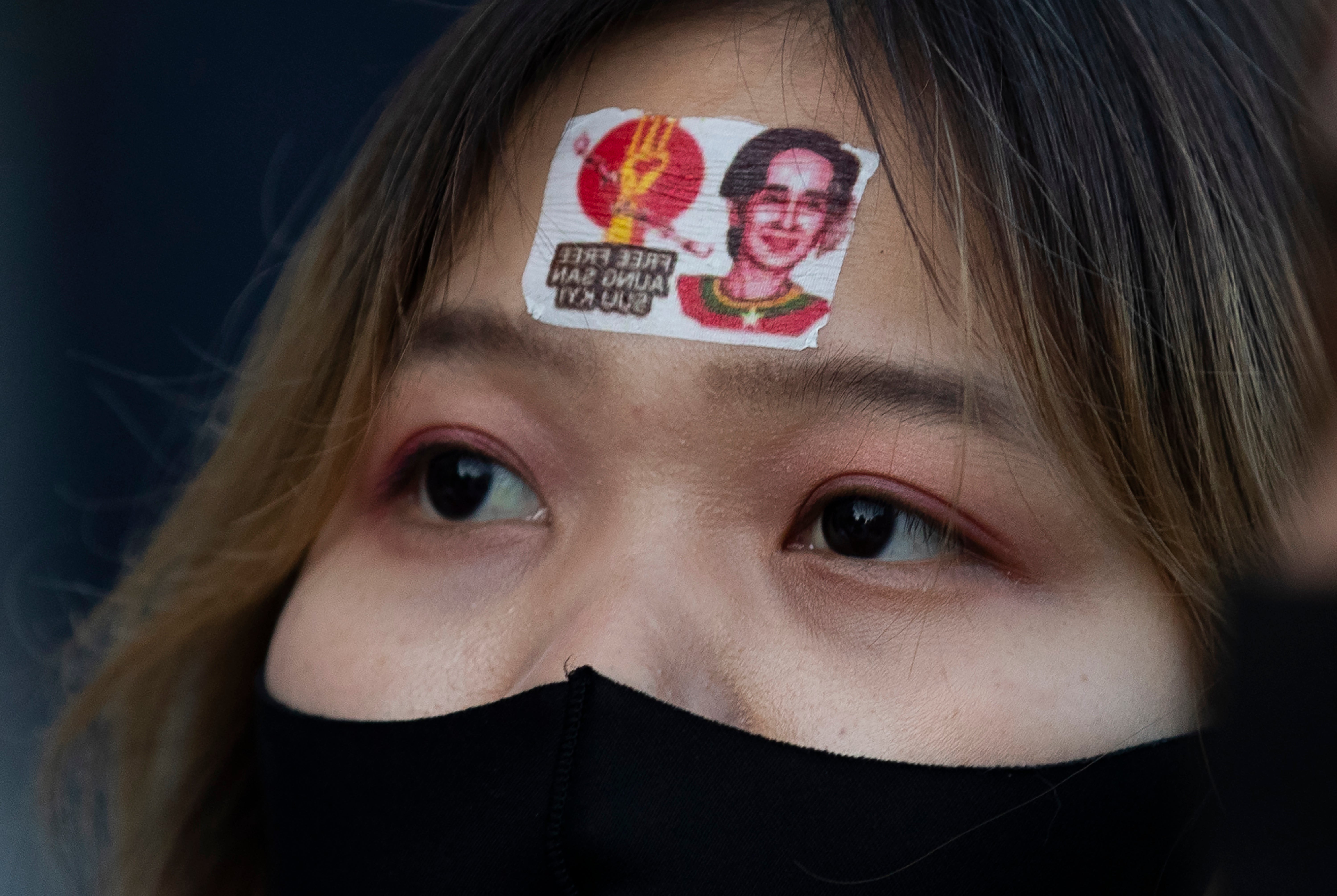Myanmar protesters gather in Japan against coup at home
Thousands of people from Myanmar have gathered in Japan’s capital to protest the military coup in their home country

Thousands of people from Myanmar sang songs and waved glow sticks as they gathered in Japan s capital on Thursday to protest the military coup in their home country.
Many of those in front of United Nations University in downtown Tokyo wore red in support of Aung San Suu Kyi whose elected government was deposed in the Feb. 1 takeover. Some clutched photos of Suu Kyi, while others held up mobile phones where messages like “Justice” and “Save Myanmar” ran across the displays.
“I am here because I want to relay what is in my heart,” said Lei Yee Oo, who has been living in Tokyo for the past two years, studying law while working at a supermarket and a restaurant.
“I am young, and I want to have a future,” the 22-year-old said almost in tears.
The coup reversed significant gains Myanmar had made on the path toward democracy following five decades of military rule. The reforms that led to Suu Kyi's party winning elections in 2015 led the international community to lift sanctions on the country and there are now threats to reimpose some of them.
Some 33,000 people from Myanmar live in Japan, many of them workers, according to Japanese government data. There are also economic ties, with 436 Japanese companies doing business in Myanmar, mostly in construction and distribution services, that are members of the Japan Chamber of Commerce and Industry in Myanmar, according to JETRO, a government-related agency that promotes trade and investment.
While the U.S. has threatened sanctions, Japan’s response has been less clear.
Japanese Foreign Minister Toshimitsu Motegi spoke by phone with U.S. Secretary of State Antony Blinken earlier this week, and agreed both nations want Suu Kyi's release from detention, restoration of democratic rule and violence against those protesting the coup to end.
In Tokyo, Phyo Wai Kyaw said he wanted to do all he could until Suu Kyi is again his country's leader.
“I want to fight without giving up,” said the 28-year-old, who has lived in Japan for about four years, studying business.
He said he was worried about his parents and siblings in Myanmar. He said he wanted to go back some day to what he hoped would be a more democratic Myanmar.
Organizers said they were planning more protests, including a march through downtown Tokyo on Sunday. Their message was mostly emotional and did not center on demands for Japanese government action.
Myo Gyi, wearing a “We Love Myanmar” vest with a heart symbol, led the crowd in song as another man held a speaker blaring music.
Myo Gyi acknowledged he felt bad about so many people gathering during the coronavirus pandemic, which meant health risks.
“But there is no future for our children under military rule,” he said.
___
Yuri Kageyama is on Twitter https://twitter.com/yurikageyama
Bookmark popover
Removed from bookmarks